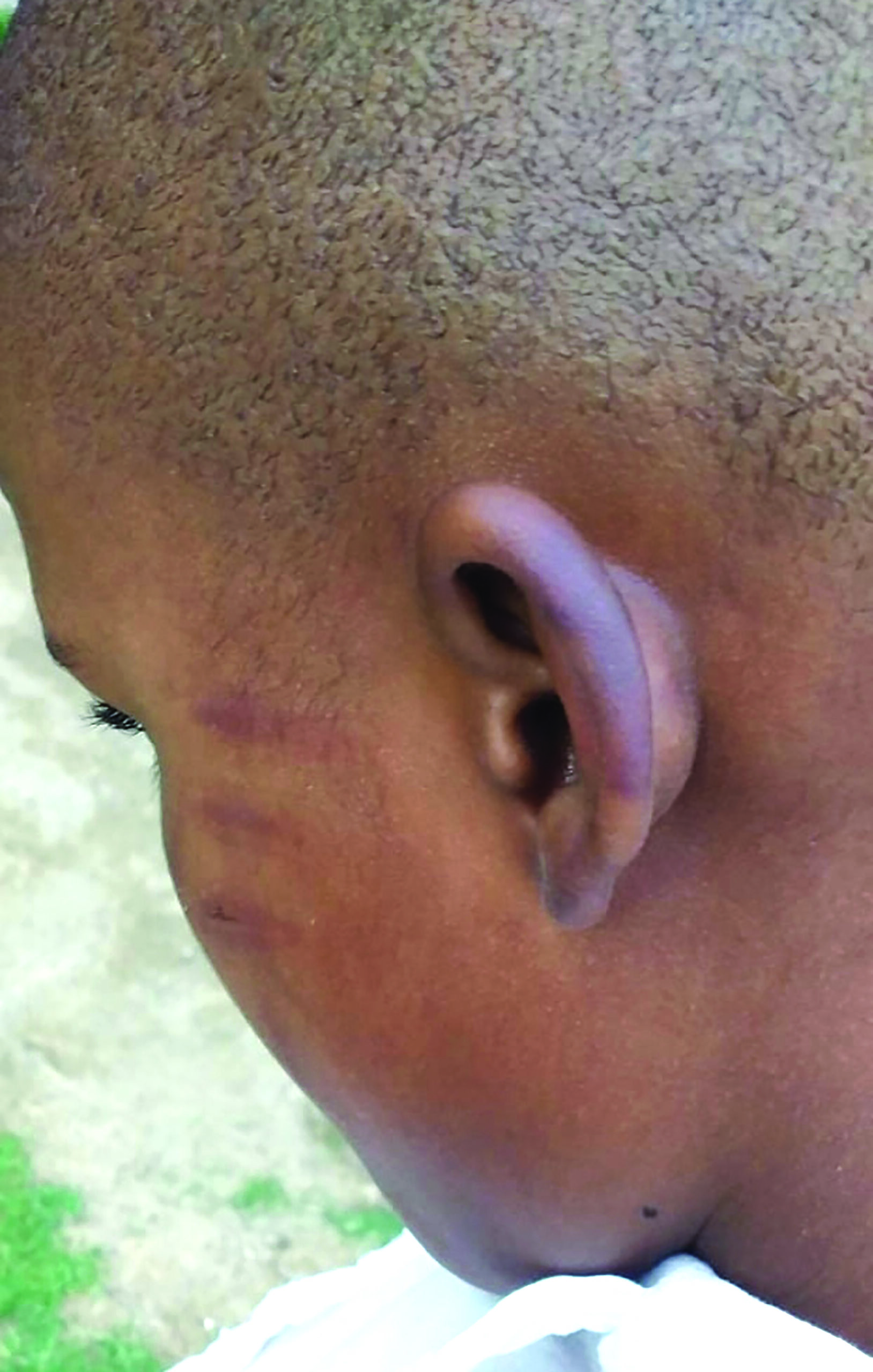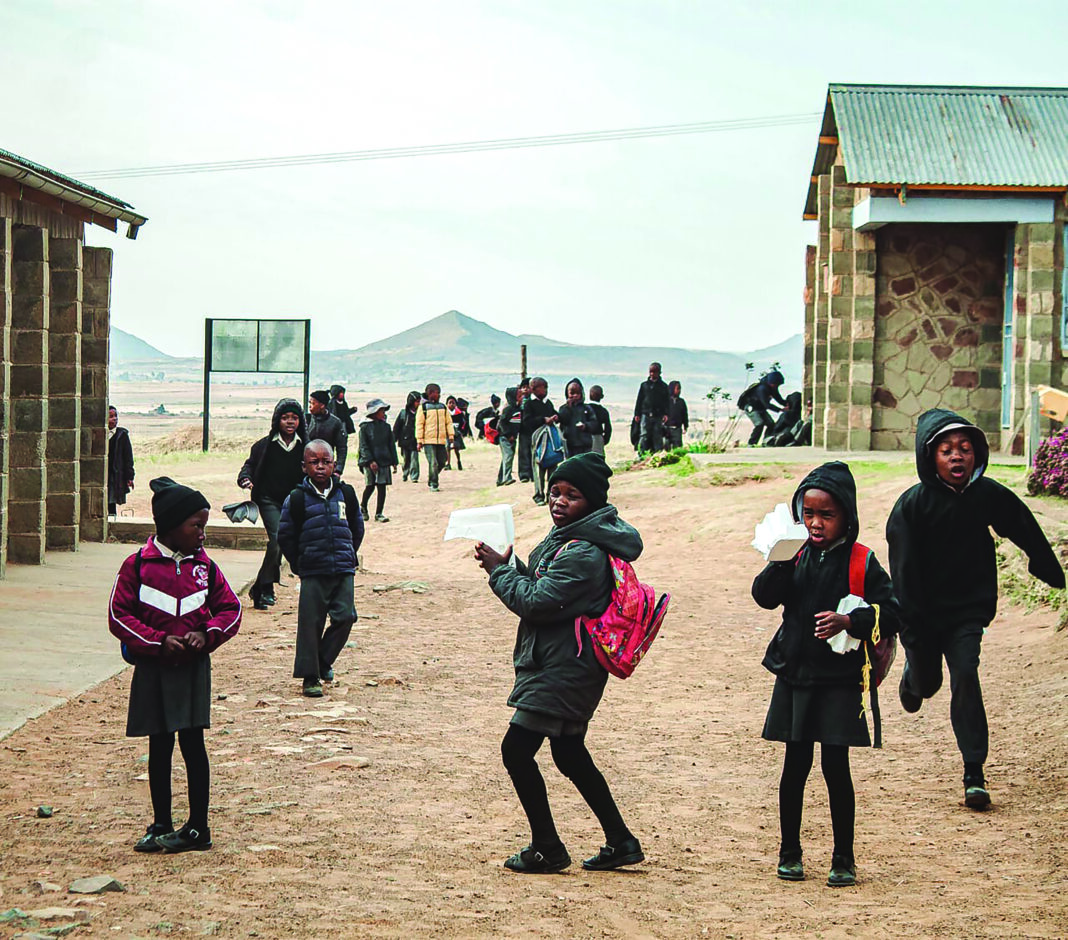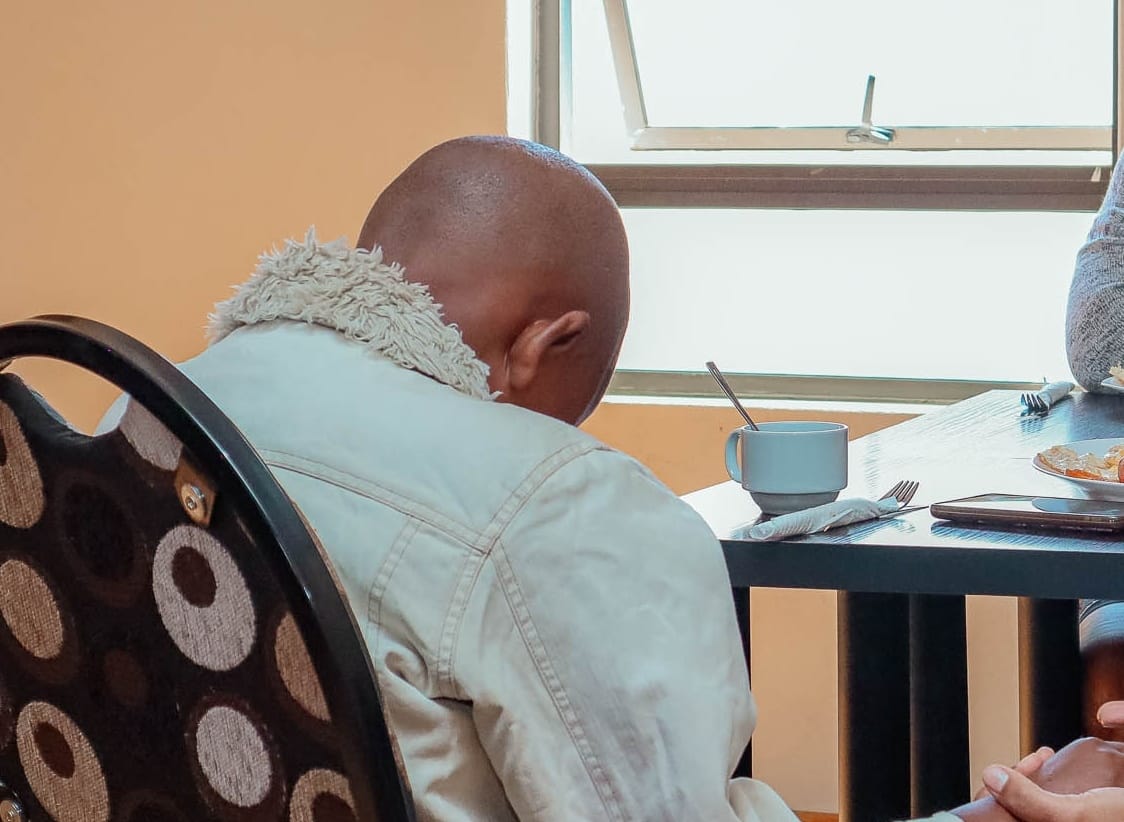Nicole Tau
A stick from a peach tree, a cable, a hose pipe, a sjambok, or worse, a stick inside a pipe for a sharper sting. These are the tools used to “discipline” children in schools across Lesotho.
Strikes across the face, legs, or back; blows to the palms; or even a foot pressed on a child’s chest while they lie helpless on the floor. For many Basotho children, this is not just discipline, it is a daily reality.
*Mamello, a bright, gentle 10-year-old girl, was born with partial hearing loss. She can hear only certain sounds; thunder, for instance, but much of the world remains silent to her.
When she began attending a school for children with hearing impairments her mother believed that this would be the nurturing environment her daughter deserved. But those hopes were shattered in her very first year.
In November 2022, driven by a mother’s intuition, Mamello’s mother rushed to the school. She had no concrete reason to believe anything was wrong, just a gnawing sensation deep in her gut. What she found when she arrived would haunt her.
Mamello, a girl whose skin was once smooth and glowing, now had dark purple lash marks crisscrossing her face, ears, and neck. These marks told the story that her daughter could not fully express. She stood there, silent, surrounded by other students who had gathered around her.
“I will never forget that moment,” her mother recalls. “A crowd of children brought her to me, and I saw those marks, across her face, her ears. I was about to go crazy. I just asked, ‘What happened to my daughter?’ The children pointed at the principal.”
Mamello’s mother’s voice trembles as she continues. “They told me she was beaten along with others. Beaten for drawing on her arms. The principal said she had whipped Mamello ‘on the ears that were not listening’.”
It had been days after the beating, yet no one had bothered to inform Mamello’s mother, who would not have known anything if she had not followed her instincts that day.
Despite her heartbreak, she left the school that day without her daughter, unable to take her home immediately.
But when she returned to collect Mamello later, she found that her daughter had been whipped again, this time by a man who worked in the school garden. His reason? Punishing her for playing on the veranda.
The repeated cruelty left Mamello’s mother no choice but to take action. For two years now, she’s been fighting in court, seeking justice for her daughter. But the process has been slow, painful and costly.
The long delays, lack of communication, and scarce resources have made her feel sidelined, lost in a system that moves far too slowly for those who suffer.
Thupa e otlolloa e sa le metsi – a stick is straightened while still wet.

“Learners need discipline, and corporal punishment is an essential corrective tool,” insists Letsatsi Ntsibolane, the Secretary General of the Lesotho Association of Teachers (LAT).
With over two decades of experience in teaching, Ntsibolane believes corporal punishment is embedded in both the Basotho’s way of life and the Bible, quoting Proverbs 23:13: “Do not withhold discipline from a child; if you strike him with a rod, he will not die…”
The LAT has long supported corporal punishment, openly opposing the provision under the Education Act of 2010, which prohibits the practice.
A survey conducted among 11 teachers in Lesotho reveals that nearly half (45.5 percent) of the respondents admitted to using corporal punishment either occasionally, frequently, or almost daily.
However, 45.5 percent of these teachers also acknowledged the harmful long-term psychological effects on students, such as aggression and anxiety.
Despite recognising the negative impact, many continue to rely on corporal punishment due to cultural pressure and a lack of training in alternative disciplinary methods.
On the other side of the debate, the Ministry of Education and Training claims a “zero tolerance” stance on corporal punishment, backed by the very same Education Act.
“We regard it as assault,” the Ministry’s Principal Secretary, Ratsiu Majara asserts, emphasising that physical punishment causes harm rather than teaching. “If a student performs poorly, we need to ask why, engage them, do not beat them.”
Yet the Ministry appears blind to the reality. While they profess strict consequences for teachers who practice corporal punishment, the widespread use of it in schools suggests a different story.
Majara himself admits: “I think the manner in which it is done where it is done, it is done covertly.”
And the laws surrounding corporal punishment in Lesotho further present a confusing and troubling landscape, where one hand seems to offer protection, while the other quietly permits harm.
The Education Act of 2010 stands as a beacon of hope for children, clearly stating under Section 4(4) that “a learner shall not be subjected to cruel, inhuman, and degrading punishment.”
However, the very next law that governs child welfare, the Child Protection and Welfare Act (CPWA) of 2011, tells a different story. Under Section 16 of this Act, children are supposedly protected from torture and other cruel treatment, yet the same section permits “chastisement”, discipline, corporal punishment, as long as it is “in accordance with the child’s age, physical, psychological, emotional, and mental condition.”
This vague language creates a loophole that effectively allows corporal punishment to continue under the guise of discipline. How do we ensure it doesn’t cross the line into abuse?
Thupa ke mosesetso, mmele ke koae oa hlomela – A stick is a medicine and the body is a crop that will grow again.

Belly, 16, dreams of becoming an accountant, but her schooling has been marred by corporal punishment.
She recalls being whipped for speaking in her native language, Sesotho, even though she was not.
“Sometimes, I can handle the beating, but other times it fills me with anger,” she says, still tearful about the incident a year later.
Despite the daily normalisation of corporal punishment at her government school, this particular event left a lasting scar.
Molly, 17, shares a similar story. She was beaten so hard by a teacher for scoring less than 70 percent that her hand swelled, leaving her unable to write for a week.
“I hated him and the subject he taught,” she confesses. Although her aunt intervened, the teacher soon returned to his harsh methods.
“In class, he would hurl insults at us, saying he did not care about our feelings, that he was just there to do his job,” Molly adds. Despite the brief reprieve, the teacher’s severe punishments continued unabated, leaving Molly with a deep-seated resentment.
Corporal punishment in Lesotho is more prevalent and severe in government and lower-middle-income schools. Children from upper-middle-class families attending private schools are largely spared from this cultural practice.
The few private schools have eliminated corporal punishment, taking reported incidents seriously and following formal procedures.
In contrast, government schools lack guidelines or policies to regulate corporal punishment, even though it is technically prohibited under the Education Act.
Even in one of the oldest government schools in Lesotho, corporal punishment remains unchecked.
According to its principal who preferred to remain anonymous, incidents of corporal punishment that cross the line and end in serious injuries are often settled out of court, with teachers facing no serious consequences beyond covering medical costs.
Ha u sa utloe ha u joetsoa, u tla utloa ka letlalo – if you cannot respond when being told, you will respond well with pain.
A 2020 study titled The Influence of the Basotho Culture on the Use of Corporal Punishment in Secondary Schools in Lesotho, by researchers Retšelisitsoe Mantoa Matheolane and Alfred Henry Makura, draws on the Bio-ecological theory of psychologist Urie Bronfenbrenner.
This theory explains that a child’s development is shaped by the environments they interact with, like schools and homes.
Over time, cultural practices like corporal punishment become normalised, passed down from generation to generation, reinforcing beliefs that punishment is essential for maintaining order.
However, the study highlights that these interactions, especially when violent, often have negative effects, leading to issues like aggression, fear, and emotional instability.
In the long run, this harms both the child’s emotional well-being and their understanding of authority and discipline.
LAT Secretary General, Ntsibolane, while supporting corporal punishment, acknowledges the dangers of unregulated practices.
“We need policies to set limits,” he says, “so teachers can discipline without resorting to torture.”
He suggests that the country should abide by these conventions but allow some cultural exceptions with proper regulations in place.
This disconnect between the government and the teachers’ association highlights a concerning divide, reflecting a broader lack of legal implementation and coherence in the country.
This dance between the Ministry of Education and Training and LAT, particularly Teachers, is as old as time.
PS of Education, Majara, admits that resource constraints limit inspector oversight. There are plans for liaison inspections to improve school leadership monitoring, but implementation remains unclear.
Lesotho’s inability to align its laws with cultural realities creates a dangerous environment where discipline too easily crosses into abuse.
With Lesotho ranked first globally in suicide rates and over 86 percent of women experiencing gender-based violence, early exposure to violence may be fueling cycles of harm.
Ending corporal punishment could, as international research suggests, reduce domestic violence, mental health disorders, and overall societal aggression.
*Names have been changed to protect the identity of children involved.
This story was produced with the support of Media Monitoring Africa as part of the Isu Elihle Awards.
Summary
- A stick from a peach tree, a cable, a hose pipe, a sjambok, or worse, a stick inside a pipe for a sharper sting.
- When she began attending a school for children with hearing impairments her mother believed that this would be the nurturing environment her daughter deserved.
- But when she returned to collect Mamello later, she found that her daughter had been whipped again, this time by a man who worked in the school garden.

Your Trusted Source for News and Insights in Lesotho!
At Newsday Media, we are passionate about delivering accurate, timely, and engaging news and multimedia content to our diverse audience. Founded with the vision of revolutionizing the media landscape in Lesotho, we have grown into a leading hybrid media company that blends traditional journalism with innovative digital platforms.










